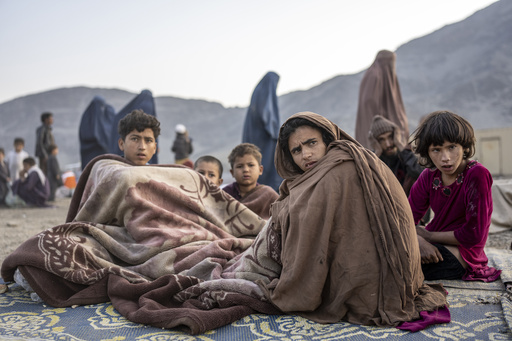Three years after the Taliban seized control of Afghanistan, they have transformed from being an insurgency to holding power and enforcing their version of Islamic law. While they lack international recognition as the official government, the Taliban have engaged in high-level discussions with major regional players like China and Russia, showcasing their perceived legitimacy on the global stage. Afghan women and civil society have been excluded from important talks, emphasizing the Taliban’s dominance.
The Taliban are led by a supreme leader who sits at the top of their hierarchy, overseeing a system that includes mosques, clerics, and the Kabul administration. The group is made up of a mix of hard-liners and political pragmatists, maintaining unity in their rule. To reward their loyalty and maintain cohesion, experienced Taliban fighters have taken up bureaucratic positions within the government, receiving perks like control over provinces or additional wives.
Despite a lack of formal education in civilian institutions, the Taliban administration exerts control down to the village level, facing economic challenges exacerbated by the country’s reliance on foreign aid. Foreign donations have been taxed or diverted, with limited means for the Taliban to stimulate economic growth. The banning of interest transactions and restrictions on female education and employment have further stifled economic progress, posing risks to the country’s stability.
Diplomatically, the Taliban have sought to strengthen ties with China and Russia, permanent members of the U.N. Security Council. The group’s interactions with Gulf nations and their attempts at portraying a peaceful and service-oriented government indicate efforts to maintain global relationships. The Taliban have leveraged social media to shape their narrative and normalize their interpretation of Islamic law, but the country’s media landscape has suffered due to Taliban censorship.
While the Taliban have established a semblance of security through checkpoints and armed forces, the country remains unsafe, particularly for women and minorities. Civilian casualties persist due to attacks by groups like the Islamic State, causing ongoing fear and anxiety among the population. The situation underscores the complexities and challenges faced by Afghanistan under Taliban rule, despite efforts to portray a facade of stability and security.
